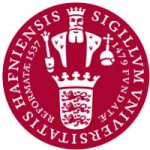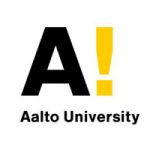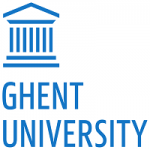项目介绍
The Programming Language and Theory of Computation (PLTC) section invites applicants for a PhD fellowship in Computer Science, focusing on Privacy and Cybersecurity in a project titled Principled Design of Metadata Private Protocols for Anonymous Communication.
The start date is expected to be 1st October 2025, but a later date can be negotiated.
The project
The project focuses on designing, implementing, and proving the privacy of metadata private protocols.
What is metadata privacy? In the context of networked systems, metadata is for example when, how often, and to whom someone sends a message. Using standard network protocols such as TCP/IP, such metadata is directly exposed, even if the message content is protected by encryption. The goal of metadata privacy in this setting is therefore to hide that communication took place.
Who needs metadata privacy? For example, consider that Alice, who’s a whistleblower, wants to send a message to Bob, who’s a journalist. Bob will later write a newspaper story where he doesn’t use Alice’s name, but he will disclose that he has been in contact with someone from Alice’s workplace. Alice is worried that her manager might monitor the company network and find out that she communicated with Bob—in case no one else talked to Bob, Alice’s manager could easily infer that Alice must’ve been the one who leaked the story. Alice would need to use some communication protocol that can hide that she talks to Bob, and this is where you come in.
The research area. Designing protocols for metadata privacy has been an open research challenge since the 1980s, where researchers focus both on hiding metadata (anonymous communication), and in extension, avoiding network traffic being blocked (censorship resilience). In this project, we are interested in both anonymous communication and censorship resilience.
Protocols for metadata privacy. While there currently exists multiple protocols for metadata privacy, from protocols with strong privacy guarantees but large overhead (e.g., DC-nets), to more practical protocols like onion routing (e.g., Tor), they are either not available in the wild, or there are known attacks against them. A reason for these shortcomings is the inherent challenge when designing metadata private protocols: protocols need to sacrifice either low latency, low bandwith overhead, or strong privacy. In this project, we are interested in finding new, practical solutions that still maintain strong privacy, which requires us to strike an adequate trade-off between performance and privacy.
Our research direction. Following our recent design of a metadata private protocol for instant messaging, which we call Deniable Instant Messaging (DenIM), our insight is that metadata private protocols need to be application-aware. In this project you will build on, and improve our current methodology for designing application-aware metadata private protocols. The methodology will be example-driven, meaning that we will start from a specific application, and design the protocol from there. We also combine theory and practice in this project. We expect the project to include the following tasks:
- Designing an application-aware metadata private protocol.
- Implementing and evaluating a proof of concept system.
- Proving the privacy and security properties of the protocol.
Our goal is to together with you uncover new, principled insights into how protocols should be designed, what is important for metadata private protocols to be practical in real-world applications, and how we can prove privacy and security properties about metadata private protocols.
Who are we looking for?
We are looking for candidates within the field(s) of computer security and privacy, programming languages, formal methods, information flow, or networks and systems. Applicants can have a background from computer science, computer engineering, mathematics, or a similar area.
We expect you to be interested in both theoretical and empirical aspect of computer security. In the context of this project, we expect you to be interested in some of the following aspects: designing new network protocols for anonymous communication, building a proof of concept system implementing your new protocol, and formally proving the security/privacy guarantees of your protocol.
Our group and what we offer
We offer creative and stimulating work tasks in a dynamic and international research environment. You will be part of the Programming Language and Theory of Computation (PLTC) section (https://di.ku.dk/english/staff/vip/researchers_pltc/), where you will be advised by two faculty members from the group, namely:
- Assistant professor Boel Nelson, Department of Computer Science, bn@di.ku.dk.
- Professor Thomas Jensen, Department of Computer Science, thje@di.ku.dk.
The group is a part of Department of Computer Science, Faculty of SCIENCE, University of Copenhagen. We are located in Copenhagen.
The PhD programme
Depending of your level of education, you can undertake the PhD programme as either:
Option A: A three year full-time study within the framework of the regular PhD programme (5+3 scheme), if you already have an education equivalent to a relevant Danish master’s degree.
Option B: An up to five year full-time study programme within the framework of the integrated MSc and PhD programme (the 3+5 scheme), if you do not have an education equivalent to a relevant Danish master´s degree – but you have an education equivalent to a Danish bachelors´s degree.
********************************************************************************
Option A: Getting into a position on the regular PhD programme
Qualifications needed for the regular programme
To be eligible for the regular PhD programme, you must have completed a degree programme, equivalent to a Danish master’s degree (180 ECTS/3 FTE BSc + 120 ECTS/2 FTE MSc) related to the subject area of the project, e.g., computer science, computer engineering, or a similar area. For information of eligibility of completed programmes, see General assessments for specific countries and Assessment database.
Terms of employment in the regular programme
Employment as PhD fellow is full time and for maximum 3 years.
Employment is conditional upon your successful enrolment as a PhD student at the PhD School at the Faculty of SCIENCE, University of Copenhagen. This requires submission and acceptance of an application for the specific project formulated by the applicant.
Terms of appointment and payment accord to the agreement between the Danish Ministry of Taxation and The Danish Confederation of Professional Associations on Academics in the State. The position is covered by the Protocol on Job Structure.
Option B: Getting into a position on the integrated MSc and PhD programme
Qualifications needed for the integrated MSc and PhD programme
If you do not have an education equivalent to a relevant Danish master´s degree, you might be qualified for the integrated MSc and PhD programme, if you have an education equivalent to a relevant Danish bachelor´s degree. Here you can find out, if that is relevant for you: General assessments for specific countries and Assessment database.
Terms of the integrated programme
To be eligible for the integrated scholarship, you are (or are eligible to be) enrolled at one of the faculty’s master programmes in computer science.
Students on the integrated programme will enroll as PhD students simultaneously with completing their enrollment in this MSc degree programme.
The duration of the integrated programme is up to five years, and depends on the amount of credits that you have passed on your MSc programme. For further information about the study programme, please see: www.science.ku.dk/phd, “Study Structures.
Until the MSc degree is obtained, (when exactly two years of the full 3+5 programme remains), the grant will be paid partly in the form of 48 state education grant portions (in Danish: “SU-klip”) plus salary for work (teaching, supervision etc.) totalling a workload of 150 working hours per year.
A PhD grant portion is currently (2025) DKK 7.086 before tax.
When you have obtained the MSc degree, you will transfer to the salary-earning part of the scholarship for a period of two years. At that point, the terms of employment and payment will be according to the agreement between the Ministry of Finance and The Danish Confederation of Professional Associations on Academics in the State (AC). The position is covered by the Protocol on Job Structure.
Responsibilities and tasks in both PhD programmes:
- Complete and pass the MSc education in accordance with the curriculum of the MSc programme (ONLY when you are attending the integrated MSc and PhD programme).
- Carry out an independent research project under supervision.
- Complete PhD courses corresponding to approx. 30 ECTS / ½ FTE.
- Participate in active research environments, including a stay at another research institution, preferably abroad.
- Teaching and knowledge dissemination activities.
- Write scientific papers aimed at high-impact journals.
- Write and defend a PhD thesis on the basis of your project.
The following qualifications are mandatory:
- Professional qualifications relevant to the PhD project.
- A a strong interest in computer security and privacy.
- Good programming skills.
- Good language skills.
Additionally, the following qualifications are taken into account if applicable:
- Relevant publications.
- Relevant work experience.
- Other relevant professional activities.
***************************************************************************
Application and Assessment Procedure
Your application including all attachments must be in English and submitted electronically by clicking APPLY NOW below.
Please include:
- Curriculum vitae, including information about your education, experience, language skills and other skills relevant for the position.
- Brief statement (approx. one page) outlining why you want to conduct doctoral studies, including a description of your qualifications and interests, as well as explaining why you are interested in this specific PhD project.
- Diploma and transcripts of records (BSc and MSc), including an authorized English translation if issued in another language than English or Danish. If not completed, a certified/signed copy of a recent transcript of records or a written statement from the institution or supervisor is accepted.
- Other information for consideration, e.g., BSc/MSc thesis or research publications.
- Letters of recommendation, or the name and address for three references who might be contacted later in the recruitment process.
Application deadline:
The deadline for applications is 30th June 2025, 23:59 GMT +2.
We reserve the right not to consider material received after the deadline, and not to consider applications that do not live up to the abovementioned requirements.
The further process
After deadline, a number of applicants will be selected for academic assessment by an unbiased expert assessor. You are notified, whether you will be passed for assessment.
The assessor will assess the qualifications and experience of the shortlisted applicants with respect to the above mentioned research area, techniques, skills and other requirements. The assessor will conclude whether each applicant is qualified and, if so, for which of the two models. The assessed applicants will have the opportunity to comment on their assessment. You can read about the recruitment process at http://employment.ku.dk/faculty/recruitment-process/.
Interviews with selected candidates are expected to be held in August.
Questions
For specific information about the PhD fellowship, please contact the supervisor, Boel Nelson bn@di.ku.dk
General information about PhD study at the Faculty of SCIENCE is available at the PhD School’s website: https://www.science.ku.dk/phd/.
You can also contact the PhD Administration (phdadmin@di.ku.dk) for general inquiries about the Department of Computer Science’s PhD Programmes.
The University of Copenhagen wishes to reflect the surrounding community and invites all regardless of personal background to apply for the position.Part of the International Alliance of Research Universities (IARU), and among Europe’s top-ranking universities, the University of Copenhagen promotes research and teaching of the highest international standard. Rich in tradition and modern in outlook, the University gives students and staff the opportunity to cultivate their talent in an ambitious and informal environment. An effective organisation – with good working conditions and a collaborative work culture – creates the ideal framework for a successful academic career.
联系方式
电话: +45 35 32 26 26相关项目推荐
KD博士实时收录全球顶尖院校的博士项目,总有一个项目等着你!





